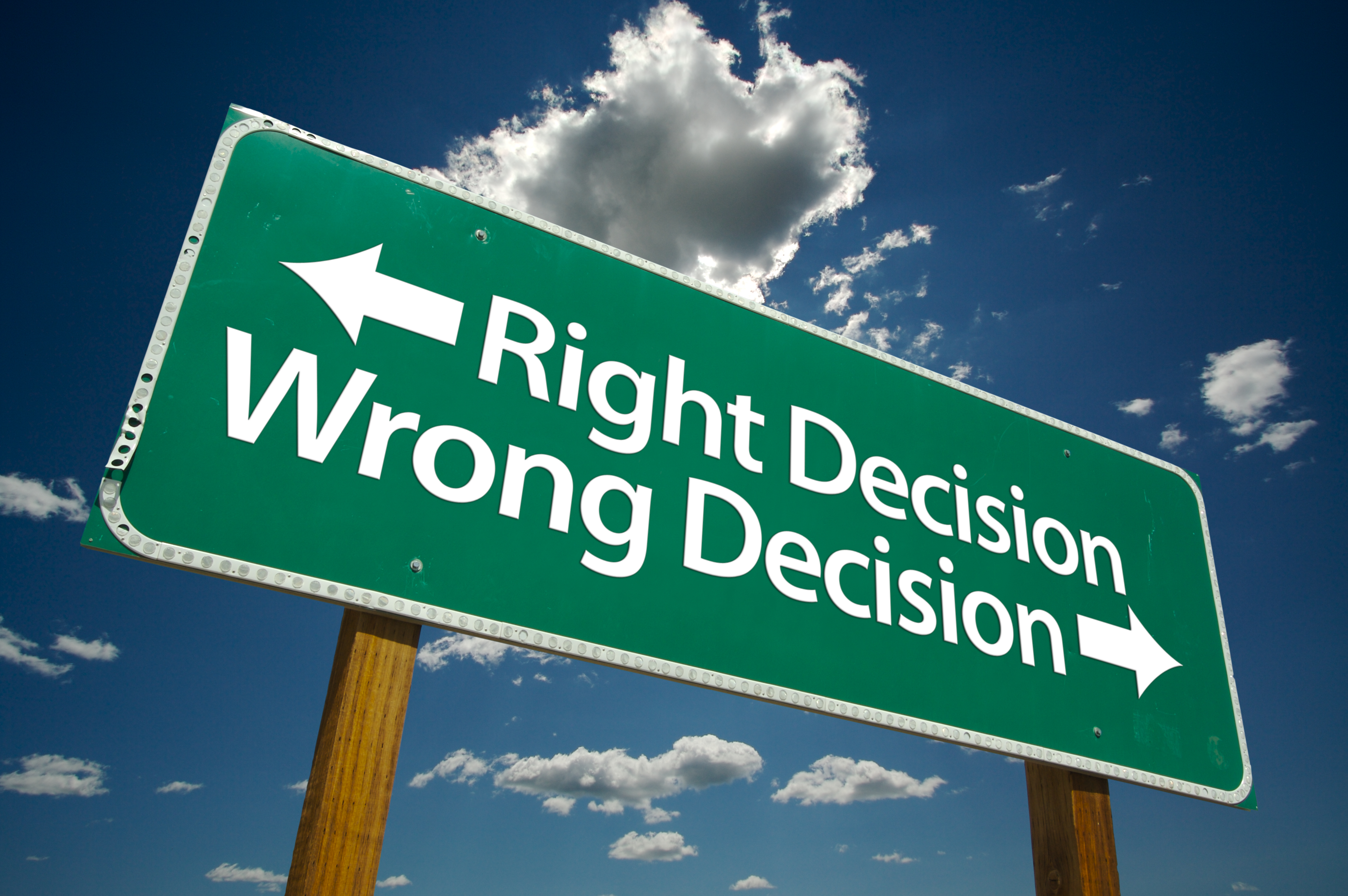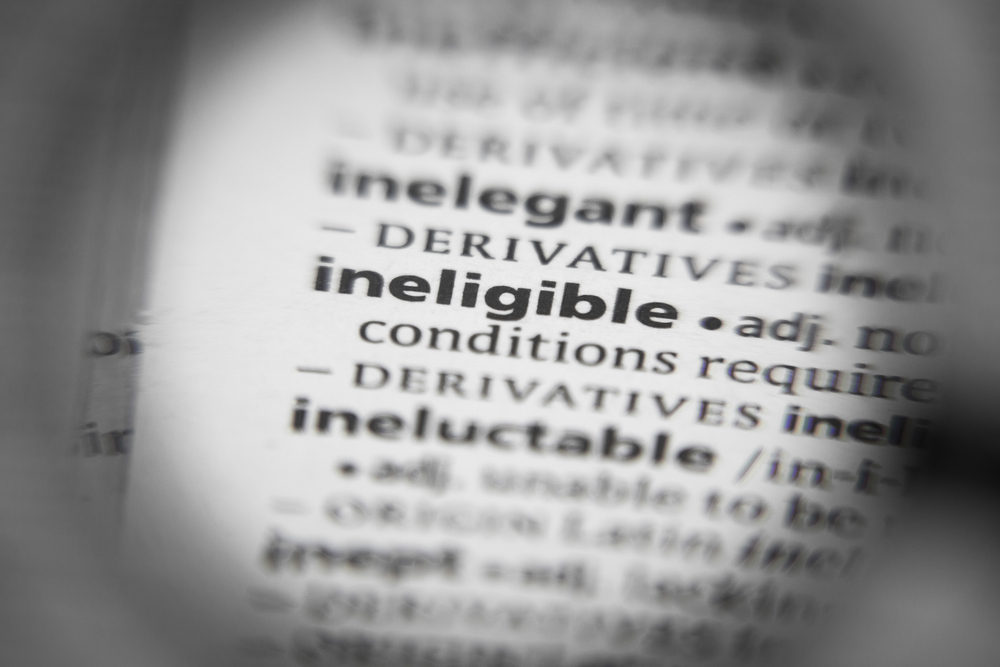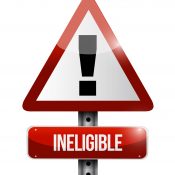“It is frustrating beyond belief that those who would benefit most from the proposed changes are mischaracterizing the reforms…. The ‘my way or the highway’ approach to PERA is particularly annoying when what is being said is manifestly incorrect.”
 It is time to set the record straight. For reasons I don’t understand, many inventors are just not being truthful about the provisions of patent reform bills now pending in Congress. In fact, some in the independent inventor community are attempting to rally support to kill the overwhelmingly pro-patent, pro-innovation, patent eligibility bill now pending. This is an enormous mistake that will have tragic consequences unless those who have the most to lose become willing to accept a win, even if that win does not provide them with 100% of what they want.
It is time to set the record straight. For reasons I don’t understand, many inventors are just not being truthful about the provisions of patent reform bills now pending in Congress. In fact, some in the independent inventor community are attempting to rally support to kill the overwhelmingly pro-patent, pro-innovation, patent eligibility bill now pending. This is an enormous mistake that will have tragic consequences unless those who have the most to lose become willing to accept a win, even if that win does not provide them with 100% of what they want.
Unfortunately, independent inventors specifically, and more generally the innovation community, refusing to take a win that will lead to a better, fairer patent system is nothing new. Ever since the passage of the America Invents Act (AIA), most inventors have been extremely upset, and rightfully so. We have watched the Supreme Court, the Federal Circuit and the Patent Trial and Appeal Board (PTAB) deviate from long-held norms, interpreting many important innovations like new antibiotics, safer fetal testing, and even smart grid technologies as not being patent eligible. Along the way, there have been opportunities to make things better, admittedly not all at once, but reforming patent eligibility has seriously been on the table for discussion for at least four years, and there was an opportunity to codify the PTAB reforms instituted by former U.S. Patent and Trademark Office (USPTO) Director Andrei Iancu, for example. But the perfect has become the archenemy of the good, or at least the perfect as perceived—often incorrectly so—by some in the innovation community, and in particular independent inventors.
Blatantly Inaccurate Claims Aren’t Helping
Some within inventor leadership in various groups and organizations are saying outrageously inaccurate things as they walk the halls of Congress. For example, independent inventors are claiming that the Patent Eligibility Restoration Act (“PERA”) of 2023 would make artificial intelligence (AI) innovations patent ineligible. Of course, the exact opposite is true. And how they can get something so wrong is as mindboggling as it is frustrating.
So, how is it possible that some independent inventor leaders hold views so blatantly inaccurate about PERA? They have told IPWatchdog that they understand what various courts and tribunals do and they just know that the reforms in PERA will change nothing. But what they think they claim they know is based on more than a decade of decisions from the Supreme Court and Federal Circuit that broke from well-established patent law interpretations, and which established entirely new frameworks not found within the statute. These frameworks cannot be reconciled with the explicit text of the Patent Act, and PERA would overturn nearly all of the judicial activism of the last 12+ years relating to patent eligibility.
The Reality
For example, PERA says in explicit terms that a process “shall not be excluded from eligibility for a patent if the process cannot practically be performed without the use of a machine or manufacture.” Simply stated, it is impossible for an invention that is truly AI or machine learning (ML), which is properly described, to be performed without the use of a machine. The only possible objection by independent inventors is if they want to allow for the patenting of ideas that are not inextricably intertwined with the use of a machine or manufacture.
PERA also specifically and unceremoniously does away with the so-called judicial exceptions to patent eligibility, which the Supreme Court and Federal Circuit have aggressively used since Mayo and Alice to find software and many biotech innovations patent ineligible. An end to these judicial exceptions, which are extra-statutory usurpations of Congressional authority, is undeniably and objectively positive for innovators and patent owners. If passed, PERA would set the clock back to at least 2011 in terms of patent eligibility law, and in some sense even further, because judicial exceptions would become specifically prohibited.
According to PERA, the only exceptions to patent eligibility are:
- A mathematical formula that is not part of an invention.
- A mental process performed solely in the mind of a human being.
- An unmodified human gene, as that gene exists in the human body.
- An unmodified natural material, as that material exists in nature.
- A process that is substantially economic, financial, business and can practically be performed without a machine.
This list specifically and unambiguously overrules Mayo and Myriad, and while it would prevent the patentability of pure business methods, if the invention is not substantially economic or financial in nature, it will be patent eligible. Tie this together with the PERA caveat that says if the invention cannot be practically performed without a machine it is eligible, and the law would make things like payment gateways that provide a technical solution to a technical problem patent eligible, which is not the case presently.
‘My Way or the Highway’ Sends Us Over the Cliff
It is frustrating beyond belief that those who would benefit most from the proposed changes are mischaracterizing the reforms. If the industry is divided, it will be an uphill fight to achieve pro-patent reform. The “my way or the highway” approach to PERA is particularly annoying when what is being said is manifestly incorrect.
Beware of anyone who tells you that the 2023 round of patent reform legislation isn’t pro-inventor and pro-patentee. The real problem is this round of patent reform may be too one-sided to get past what will eventually be a full court assault by those who like things precisely as they are today. For now, those in favor of the status quo can just sit back and allow independent inventors to form a circular firing squad. It is sad to watch. So much good could be done, but for some reason if things are not done precisely the way the independent inventors demand they are aggressively opposed to anything that moves the needle in a positive direction.
Image Source: Deposit Photos
Author: Feverpitch
Image ID:2329825

![[IPWatchdog Logo]](https://ipwatchdog.com/wp-content/themes/IPWatchdog%20-%202023/assets/images/temp/logo-small@2x.png)

![[Advertisement]](https://ipwatchdog.com/wp-content/uploads/2026/02/Junior-AI-Feb-10-2026-sidebar-CLE-700x500-1.jpg)
![[Advertisement]](https://ipwatchdog.com/wp-content/uploads/2026/02/Anaqua-Feb-12-2026-sidebar-700x500-1.jpg)
![[Advertisement]](https://ipwatchdog.com/wp-content/uploads/2026/02/Ankar-AI-Feb-17-2025-sidebar-700x500-1.jpg)
![[Advertisement]](https://ipwatchdog.com/wp-content/uploads/2025/12/LIVE-2026-sidebar-regular-price-700x500-1.jpg)







![[Advertisement]](https://ipwatchdog.com/wp-content/uploads/2021/12/WEBINAR-336-x-280-px.png)
![[Advertisement]](https://ipwatchdog.com/wp-content/uploads/2021/12/Ad-4-The-Invent-Patent-System™.png)







Join the Discussion
21 comments so far.
Anon
September 2, 2023 12:40 pmI am reminded of two quips to Gene’s reaction:
1) Other than that, Mrs. Lincoln, how did you enjoy the play?
2) It’s a beautiful wooden horse – let’s wheel it in behind our city gates.
This is most definitely not an instance of “wanting perfect and wrecking the good.” This is instead being distracted by the Shiny and FAILING to recognize exactly why this is not even good.
Model 101
September 1, 2023 01:29 pmGene, love you big guy, but you did say:
“PERA also specifically and unceremoniously does away with the so-called judicial exceptions to patent eligibility, which the Supreme Court and Federal Circuit have aggressively used since Mayo and Alice to find software and many biotech innovations patent ineligible. An end to these judicial exceptions, which are extra-statutory usurpations of Congressional authority, is undeniably and objectively positive for innovators and patent owners. If passed, PERA would set the clock back to at least 2011 in terms of patent eligibility law, and in some sense even further, because judicial exceptions would become specifically prohibited.”
Yeah…but
The effective date of PERA SHOULD BE in 2011 or the Bilski decision date for any judgement killed by BILSKI/Alice/Mayo.
Also claims killed by Bilski/Alice/Mayo should get a patent extension because these laws are completely absurd, unconstitutional, and unfair to inventors. The facts did not matter, there was never a fact finder, and expert testimony, and claim construction did not matter.
Any other suggestion of another effective date stinks of big Tech rotten eggs. It is criminal. Without a 2011 or 2008 effective date thousands of patents will have been killed illegally.
Illegally!!!!!
At the Senate Hearings on Patent Eligibility in 2019:
I saw you and Judge Michel there:
The AIPLA said they created a 101 task force and that they decided 101 should be reformed “retroactively”.
Robert Armitage Esq. was asked by Senator Coons should 101 be reformed prospectively or retroactively and he replied “both” .
Also, you saying that USI and Josh are wrong, is another mistake.
The statute does say “ANY”.
Just sayin’
Milton Farmer
August 31, 2023 08:37 pmI’m an impatial bystander because I have invented a machine that doesn’t need software to operate. However, I am wary of a programmer writing software to automate it and not pay me license fees. Which is why all of this is pointless if we don’t have injunctive relief. Because, as I understand it, even if I prove that they infringed on my machine, I can’t stop them from selling it. I can only sue for the profits, which the lawyers get plenty of.
And, you all have stated that any bill strong enough to limit judicial overreach will not have congressional support.
My only current plan to beat all this is to hide the idea from America and patent it where injunctive relief is available.
mike
August 31, 2023 07:36 pmMr. Quinn says: “if I were in the Senate I would absolutely ignore [Josh] and USI”
Your beef with an individual shouldn’t oust the innocent who might “look like him”. There’s a term for people who do that, Gene.
And for you to say that you would ignore him and others, while also saying that Josh “cannot deal with those who are unwilling to have an honest discussion” is hypocritical. What if something that Josh or a member of USI says tomorrow just happens to be precisely the right thing?
Doesn’t matter to Mr. Quinn. He’s already cancelled them. Insight missed. So much for a diversity of opinion and the search for truth from the author here.
I guess we should add a section title to the comments:
“Blatantly Close-Minded Approaches to Other’s Perspectives Aren’t Helping”
Curious
August 31, 2023 07:12 pmand that can get 60 votes in the senate and 50%+1 in the house is the hard part.
IDK, if you can cast this as an anti-Big Tech bill, I think you can get the support in Congress. Unfortunately, Big Tech has too many in Congress on their payrolls so that Big Tech is more likely than not going to be the one that controls the narrative.
Also, if we take this half cup now, that does not preclude us from continuing on toward the oasis.
That’s not how its going to play out. If there was a bill that got passed and the same people came back just a year later and told Congress “you need to fix this,” how much support will they get? It’ll be 20+ years before you can get another bill through Congress that addresses 101. The language in this bill is fatally flawed. In fact, I could foresee this making things worse (depending upon how expansive the Federal Circuit wants to interpret things).
There is no mechanism by which the court can revert us back to the previous version of the law that Congress has since set aside.
What we call “101” jurisprudence really isn’t based upon 101 anyway — it is all judge made. As such, there is nothing to stop the Courts from reinstituting the exceptions to statutory subject matter.
Aaric Eisenstein
August 31, 2023 05:40 pmGood piece, Gene. There’s no question that Tillis is trying to help inventors. There’s also no question that he needs to write a bill that can pass. If this is the one, I’d settle for a partial win rather than another few years of the current 101 disaster.
mike
August 31, 2023 05:17 pmMr. Quinn says: “PERA explicitly overrules SCOTUS precedent.”
But like I said below, PERA as written does not prevent SCOTUS from being the arbitrer of deciding whether the promoting by Congress in Clause 8 is in accord with the Constitution.
Mr. Greenspoon’s addition does exactly that:
“No court or federal agency shall enforce any judicial exceptions so as to exclude any patent claim from patent eligibility.”
So, +1 for Greenspoon’s addition pursuant to proper SCOTUS’ stripping.
The next focus should be on the “substantially” and “practically” language, which is both vague and burden-shifting.
Josh Malone
August 31, 2023 03:24 pmDoes anyone know the position of Google, Microsoft, and the High Tech Inventors Alliance (big tech lobby association) on this bill?
Josh Malone
August 31, 2023 03:12 pmI was lying on my porch swing the other day, stretching my foot out to nudge the post to get a little elliptical rhythm going. Then I started brainstorming simple mechanisms using a rotating arm, a bungee cord, etc. Then I thought, why are Senator Tillis and others hell-bent on passing legislation to block me from patenting my new non-obviousness methods for sharing this serene pleasure with the world? They keep pointing to the need to prohibit patents on methods of swinging and marriage proposals. Why? I am genuinely perplexed.
Gene Quinn
August 31, 2023 02:10 pm@Josh
You mischaracterize pretty much everything it seems. The bill says business methods and financial innovations that do not have a technological underpinning are patent ineligible. The fact that you ignore the savings clauses and further definition about what that means, and more specifically what is not purely a business method, is precisely how and why you are with a straight face able to mischaracterize what is explicitly written into the bill.
And you complain that Tills is ignoring independent inventors. I don’t know that he is, but if I were in the Senate I would absolutely ignore you and USI. What you say is wrong, period. And you simply cannot deal with those who are unwilling to have an honest discussion about what the bill actually and explicitly says.
Very sad to see the independent inventor community follow you and USI on this. Everyone who takes the time to read the bill knows you are making things up, and that just makes it impossible for anyone to take you and USI seriously any more.
Gene Quinn
August 31, 2023 02:05 pm@Robert Greenspoon
Did I read your comment correctly? Are you saying that PERA codifies SCOTUS precedent?
That, of course, is precisely wrong. PERA explicitly overrules SCOTUS precedent. Not sure how anyone could say that SCOTUS precedent would be codified when the bill does away with judicial exceptions to patentability. And, as I pointed out in the article, there are many technical based innovations that would explicitly qualify as patent eligible if it passes that today are not patent eligible, for example payment gateways and anything that technologically facilitates financial transactions.
Josh Malone
August 31, 2023 02:03 pmGreg you are completely correct. For now Tillis believes he can get further by ignoring inventors, rather than ignoring the other interest groups (i.e., big tech, big pharma, big banks). He is wrong, but that does seem to be his current belief.
Gene Quinn
August 31, 2023 02:02 pm@Doug
You say: “I see nothing in this discussion which keeps a patent examiner from exercising personal bias against an independent inventor…”
No bill, no law, no rule will ever prevent individual human actors from inappropriately exercising personal bias. So, if you don’t support overwhelmingly positive changes to the patent law because an examiner or judge could exercise a personal bias then you are saying you are unwilling to support anything, no matter how positive. I find that to be a ridiculous standard and impossibly naive stance.
Greg DeLassus
August 31, 2023 12:58 pmWe are more than willing to work with Senator Tillis to draft a bill that works for inventors, but he has declined our offer.
Writing legislative text that improves the 101 situation is not the hard part. Writing legislative text that improves the 101 situation and that can get 60 votes in the senate and 50%+1 in the house is the hard part. Sen. Tillis has been trying to roll this stone up the hill for years now, so he knows how heavy it is and where on the hill are the bumps that cause it to slip back down. If he is not warm to your invitations to revise the text, perhaps it is because he is not eager to sabotage his own efforts.
I’d rather be led to the oasis than given a half-cup of water in the desert.
O.k., but what if an oasis is not on offer at present? What if your choice is between that half cup and simple dehydration? The idea that if we just hold out, then we will get the bill of our dreams is delusion. Also, if we take this half cup now, that does not preclude us from continuing on toward the oasis.
While I certainly appreciate the sentiment that went behind drafting (and supporting) this proposed bill, the language is too loose and can easily be twisted by the courts to return us back to where we started.
Agreed. It is possible that this bill will–if enacted–achieve nothing. On the other hand, it is possible that it will effect an improvement. The mere fact that it might achieve nothing is not a good reason to oppose it.
The only good reason to oppose it is if you think that it will more like than not effect an actual worsening of the 101 problem. That just seems so unlikely to me. Look around. Note, as you did, the recent USC v. Meta decision. Note Electric Power Group. Note a million and one terrible 101 precedents already in force. What we have is already quite bad. The PERA has a chance to make it better (if only partially). It also has a chance to leave us no worse off than we are at present. It is hard, however, to see how it leaves us worse off than we are presently.
[T]he Courts… may… strike the law as being void for vagueness, which would return us to the old regime.
Er, no. If Congress passes an amendment to 101 and the courts invalidate that amendment as “void for vagueness,” then the result is that the patent act just fails entirely. There is no mechanism by which the court can revert us back to the previous version of the law that Congress has since set aside.
Pro Say
August 31, 2023 12:12 pmWhile the ideal solution would simply be the deletion of the unnecessary, innovation-toxic Section 101, Robert’s short and sweet, “No court or federal agency shall enforce any judicial exceptions so as to exclude any patent claim from patent eligibility” is a superb second choice.
While certainly well-intentioned, PERA (as it is currently written) would merely trade one Pandora’s Box for another.
Curious
August 31, 2023 10:57 amA process that is substantially economic, financial, business and can practically be performed without a machine.
This is the language I have a problem with. It creates a loophole so big you can drive a 18-wheeler through it.
By way of example, in today’s jurisprudence, improvements to “technology” can overcome a 101 rejection, while improvements to abstract ideas cannot. However, there is no clear delineation that separates the two. Consequently, the Federal Circuit most frequently casts any so-called improvement as being towards an abstract idea — no matter the technology involved. We saw that exact approach play out just yesterday in USC IP Partnership v. Meta Platforms (“The district court correctly explained that the claims herein are not directed to improvements in computer functionality”).
What makes a process substantially economic?
What makes a process substantially business?
Any process worth litigating over arguably involves “business” and “economics.” These processes are used by businesses to make money. So what makes it substantially economic or business? I don’t know. And without any statutory guidance, the Courts are left to decide. They may institute their own definition (which will likely be over-expansive if past history is any guidance) or strike the law as being void for vagueness, which would return us to the old regime.
Also, the “and can practically be performed without a machine” is language that, while mirroring what is contained in the 2019 Patent Eligibility Guidelines, is also ambiguous as to its meaning.
While I certainly appreciate the sentiment that went behind drafting (and supporting) this proposed bill, the language is too loose and can easily be twisted by the courts to return us back to where we started.
Don Baker
August 31, 2023 10:07 amI see nothing in this discussion which keeps a patent examiner from exercising personal bias against an independent inventor, nor from inventing prior art out of whole cloth. Nor anything which codifies “obviousness”, which can still be subject to an examiner’s personal animus, or application of junk science. For example, an invention is not obvious just because it is simple, based on non-obvious considerations that no one previously thought necessary. It is obvious only if it has previously appeared somewhere in art, literature, education or culture, as in trying to patent teasing a cat with a laser pointer, or to patent a method to pump a child’s swing higher. Lucky is the independent inventor who hasn’t ever had to deal with an unethical and maliciously obstructive patent examiner, backed up by the systemic assumption of unaccountable infallibility, sometimes know as qualified immunity. SCOTUS never dropped that one, either. Some of us have seen so many instances where The Law has failed to protect we of lesser means from sometimes violent abuses, that it makes the whole thing suspect. Lawyers who have long profited from this system, and failed to promote simple ethics, can’t expect the people they have so consistently abandoned to our fates to just take their word for it.
Robert Greenspoon
August 31, 2023 09:09 amSome thought leaders have gotten behind language for a 20-word addition to Section 101 that will meet goals of the bill’s sponsors and the innovation community:
“No court or federal agency shall enforce any judicial exceptions so as to exclude any patent claim from patent eligibility.”
I have spoken on the current bill. Good intentions aside, the “substantially” and “practically” language (‘mike’ is right) guarantee 10 more years of litigation uncertainty. Plus, the analytic ping-pong of “it’s in, unless it’s got this exception, unless it’s got this exception to the exception,” and so on, makes it difficult to apply, and a lawyer’s dream.
Mostly codifying SCOTUS’s rulings, while disparaging certain areas of innovation as second-class, seems like a step backward to me. I understand Gene’s concern, but I’d rather be led to the oasis than given a half-cup of water in the desert.
Josh Malone
August 31, 2023 07:35 amIt’s not fair to describe our analysis as “blatant mischaracterizations” when the authors of the legislation say explicitly in the bill itself that they intend to prohibit patents on inventions that are substantially economic, financial, business, social, cultural, or artistic.
It seems like you are saying that Findings section of the bill is inaccurate. I don’t think it is “blatantly” inaccurate, but it is at least ambiguous and needs to be understood.
We are more than willing to work with Senator Tillis to draft a bill that works for inventors, but he has declined our offer. He just keeps trying to do what the lawyers say is good for inventors instead.
They DontRecognizeAGoodThingWhen
August 31, 2023 06:49 amReminds me of MAGA “Republicans” refusing to believe that which is plain to see. Perhaps this situation can be more broadly understood through the lens of that is how half this country operates these days.
mike
August 31, 2023 01:28 amMy comment below ignores the problems related to PERA’s “practically be performed” and “substantially”, and those concerns are real. Nevertheless…
Mr. Quinn says: PERA says in explicit terms that a process “shall not be excluded from eligibility for a patent if the process cannot practically be performed without the use of a machine or manufacture.”
Determining patent eligibility can thus be determined by the answer to this question:
Can the process be performed without the use of a machine or manufacture?
If the answer to that question is yes, then the process will be excluded from eligibility.
Mr. Quinn says: The only possible objection by independent inventors is if they want to allow for the patenting of ideas that are not inextricably intertwined with the use of a machine or manufacture.
I disagree here on semantics because an idea and a process are two different things. Perhaps inventors want to allow for the patenting of processes not inextricably intertwined with the use of a machine or manufacture. If that is true, I’m not sure I agree that is wise.
For at least two reasons:
1. A process having an application to “a manufacture” is the thing that makes it real/tangible. (It has yet to be explained how AI cannot function without a manufacture.) Absent such application of the process to manufacture, it’s hard to see how this is not something entirely abstract. Being abstract leads us to 2.
2. If it is something abstract, guess what, SCOTUS has grounds to step back in, and we’ll be back to square one. Why? Just read Alice and Bilski. Sure, per Clause 8 of the Constitution, Congress has the power to promote progress of science and useful arts. But SCOTUS still believes that SCOTUS, not Congress, is the entity that determines whether the policy that Congress codifies actually does promote the progress or not.
Bilski v. Kappos, 561 U.S. 593, 649 (2010) (“The Court has kept this ‘constitutional standard’ in mind when deciding what is patentable subject matter under § 101. For example, we have held that no one can patent ‘laws of nature, natural phenomena, and abstract ideas.'” (quoting Diamond v. Diehr, 450 U.S. 175, 185 (1981)) (Stevens, J., concurring in the judgment).
Who has kept this in mind when deciding what is patentable subject matter?
SCOTUS. Not Congress.
Thus, I submit that PERA’s current language — “All judicial exceptions to patent eligibility are eliminated.” — does nothing to prevent SCOTUS from being the arbitrer of deciding whether said promoting is in accord with the Constitution.
With that, even if inventors were to get what they want with a modified bill, if it looks like the current PERA on eliminating judicial exceptions, it still would not get them there. The current language doesn’t do enough to strip SCOTUS of their power.
To accomplish that, the legislation must declare that Congress is the entity that determines what promotes. Failing that, say “Hello” to SCOTUS in 5 years or less after enactment.
Just look at how many times “we” is mentioned below.
From Bilski:
Thus, although it is for Congress to implement the stated purpose of the Framers by selecting the policy which in its judgment best effectuates the constitutional aim, we interpret ambiguous patent laws as a set of rules that weed out those inventions which would not be disclosed or devised but for the inducement of a patent, and that embody the careful balance between the need to promote innovation and the recognition that imitation and refinement through imitation are both necessary
to invention itself and the very lifeblood of a competitive economy.
And absent a discernible signal from Congress, we proceed cautiously when dealing with patents that press on the limits of the standard written into the Constitution, for at the fringes of congressional power, more is required of legislatures than a vague delegation to be filled in later. We should not casually risk exceeding the constitutional limitation on Congress’ behalf.
From Alice:
We have described the concern that drives this exclusionary principle as one of pre-emption. (upholding the patent would pre-empt use of this approach in all fields, and would effectively grant a monopoly over an abstract idea). Laws of nature, natural phenomena, and abstract ideas are the basic tools of scientific and technological work. Monopolization of those tools through the grant of a patent might tend to impede innovation more than it would tend to promote it, thereby thwarting the primary object of the patent laws. See U. S. Const., Art. I, §8, cl. 8 (Congress “shall have Power … To promote the Progress of Science and useful Arts”). We have repeatedly emphasized this concern that patent law not inhibit further discovery by improperly tying up the future use of these building blocks of human ingenuity.